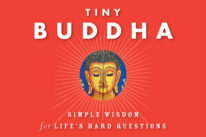
“Since we cannot change reality, let us change the eyes which see reality.” ~Nikos Kazantzakis
One minute I was a young warrior in a guild of travelers, the next, a middle-aged aristocrat in a strange Victorian world.
A pretty standard day. Oh, did I forget to mention where I was?
I was at a role-playing convention. That was over twenty years ago. Here’s how the fun worked.
Every three to four hours, I would play a different session. That means I would become a new character and go on new adventures in another world, with different people. It was a complete shift of personality and environment three times a day.
Only, the whole adventure would go on in my brain. It was all the fruit of the imagination of players around the table.
Since I was a child, I’ve always been a dreamer. Even today, I can spend hours lost in thoughts, in my mind.
I role-played for most of my younger years. From that period of my life, I’ve retained a fascination for the mind, imagination, and creativity.
The power of the brain as a simulator of fiction captivates me. After all, our perception of the world is the product of a simulation run inside our head by our brain.
Now, imagine you could get a role-playing convention experience in real life. If I told you that you could get the excitement of a fresh start every day, would you be interested in learning about it?
Exploring new lives and scenarios has been one of my ongoing quests, so I put together a five-step process you can follow to get the excitement of a fresh start every single day.
1. Adopt a child mindset.
Do you remember when you were five years old, how you looked at everything with big eyes? You were always curious, exploring and testing the world. You would invent stories, secret places, fairies, and monsters.
Jean Piaget, an important figure in developmental psychology, calls three-to five-year-old children “little scientists exploring and reflecting on these explorations to increase competence.” Children learn through experience, making mistakes, and solving problems.
If I ask my three-year-old daughter whether she wants to go and have a look at a tree, she will always say yes. In fact, whatever I ask her, she’s always up for it. There’s no limit to her curiosity, and she’s got no fear.
We, as parents, need to channel her energy and curiosity so she doesn’t hurt herself. As adults, we know when to stop so that we don’t hurt ourselves. Or do we?
Often, our fear will stop us from doing something that would be beneficial to us. Conversely, we might also sometimes go too far and hurt ourselves, when doing sports for example.
This challenges whether we’re good judges of what’s best for us. I argue that we often aren’t.
That’s why the first step is to suspend your judgment and open your mind to new possibilities. As T.S. Eliot said, “Only those who will risk going too far can possibly find out how far one can go.”
So, mentally go back to your childhood for a moment. Picture the world around you.
You’re there? Good. Now, you need to reawaken your child mindset and cultivate it.
Be curious about everything. Ask questions. Challenge your assumptions about the world.
This is your starting point. Spend time every day cultivating this mindset. Make it a habit.
2. Develop a beginner’s mind.
The second step is to act on your child mindset.
Make it your mission to discover or learn something new every day. When you wake up every morning, ask yourself, “What am I going to learn today?”
On Reddit, there’s a subreddit called “Today I learned.” Make this a motto for your life.
To inspire you, think about Jigoro Kano, the founder of Judo. Upon his death, Jigoro asked to be buried in his white belt instead of his advanced black belt. He wanted to stay open to learning and spend eternity with a beginner’s mind, symbolized by the white belt of the beginner.
Also, think about monks, who meditate and work toward attaining a state of a completely empty and open mind. They call it a “beginner’s mind”—fully open to embrace the new.
Embrace the beginner’s mind and learn something new every day.
3. Seek adventure.
To learn every day and get the excitement of new adventures, you need to go out and explore.
This might lead you to scary places. You will get ideas that might seem crazy to you some days. Don’t let your critical mind stop you.
Follow your instincts. Explore these ideas.
If the ideas scare you, it’s a good sign. That means you’re up for an adventure. And we like adventures, don’t we?
An adventure will give you excitement and new perspectives. And because of the unknown, you’ll be failing, like a child.
But then, failure will teach you important lessons to increase your learning. You will build new neural pathways in your brain instead of just re-enforcing your existing ones.
Recently, I was interviewed on a podcast. It was daunting at first. At the same time, I felt the thrill of an adventure.
Afterward, as I listened to the podcast, it gave me insights into myself. In short, it was an adventure that gave me both excitement and new perspectives.
What’s your next adventure going to be? Playing a new instrument, or maybe starting a martial art, like judo? A dance class, or a trip to Nepal?
4. One change a day keeps the boredom away.
Making small changes every day benefits you in two ways—it keeps things fresh and exciting, and it also changes your brain in a way that broadens your perception and brings more novelty into your life.
When you do the same things every day, and don’t expose yourself to new knowledge and experiences, your brain makes fewer connections between neurons. When you mix things up, however, you literally change your brain through the process of neuroplasticity.
As a result, you start to see the same things in different ways. For example, you could look at a quote you read some time ago and it could unlock a completely new meaning for you.
Your daily change doesn’t have to be big. Here are typical examples of changes I’m making in my life:
- Start reading a new book (and it’s even better when the book is on a topic I’m not familiar with)
- Listen to a new podcast
- Change my exercise routine
- Change my writing style
- Connect with new people
- Change my morning routine
- Cook a new recipe or change one I cook regularly
- Have tea instead of coffee and try various teas
- Start a new Coursera course
Constant change will keep you excited every morning—and keep your brain flexible.
5. Be a jack of all trades, master of some.
Be hungry for knowledge.
When you invest yourself in a new topic and explore it further, you become more and more excited about learning and growing your expertise.
So, as you read books, explore new topics, and take new courses, seek new subjects that captivate you. Once you’ve found one, immerse yourself and learn as much as you can, and follow your curiosity wherever it takes you. For example, learning about minimalism may introduce you to tiny houses, which then piques your interest in sustainable design.
In essence, you’ll always have a few topics that you’re focused on and many others that you’ll try out to fuel constant change.
It gets better: As your expertise grows in different areas, you’ll broaden your overall culture. That means you’ll never run out of topics of conversation, and you’ll be able to relate to lots of different people.
Bottom line: Invest yourself in new topics and you’ll live an exciting life.
Never Settle
You’re in control of your life. You can change it overnight if you decide to do so.
It’s a matter of mindset. How you decide to see the world and react to it dictates your day.
You can embrace each day as a new start, a new adventure. Whatever excites you, you can go out and explore it.
It’s up to you now. Are you prepared for a fresh start every day? Are you willing to build an exciting life for yourself?
Woman at window image via Shutterstock
About Antoine Ribordy
Antoine Ribordy is a blogger on www.dreamsetachieve.com. His mission is to teach people how they can create an inspiring lifestyle that they control. His results-focused approach is based on lessons from neuroscience and psychology and best practices in coaching and learning. Check out his free guide 5 steps to escape a boring life, get rapid results and architect your future.













 Though I run this site, it is not mine. It's ours. It's not about me. It's about us. Your stories and your wisdom are just as meaningful as mine.
Though I run this site, it is not mine. It's ours. It's not about me. It's about us. Your stories and your wisdom are just as meaningful as mine. 